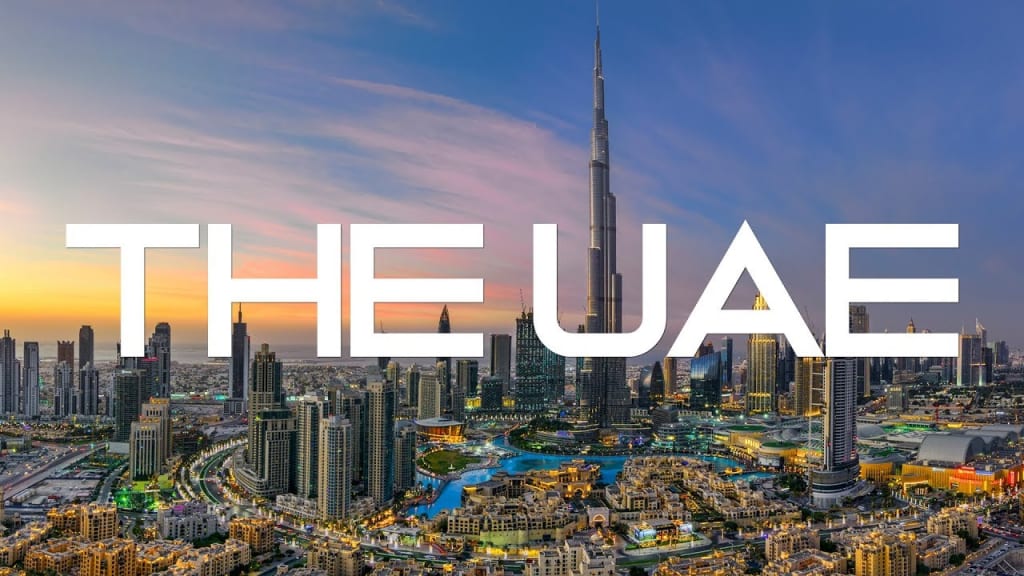
The United Arab Emirates (UAE) is a relatively young country that was formed on December 2, 1971, when seven independent emirates came together to form a federation. The seven emirates were Abu Dhabi, Dubai, Sharjah, Ajman, Umm Al Quwain, Fujairah, and Ras Al Khaimah.
Prior to the formation of the UAE, the area was inhabited by various tribes and was heavily involved in maritime trade. The area was also under the influence of different foreign powers at different times, including the Portuguese, the British, and the Ottomans.
In 1820, the British signed a treaty with the rulers of the Trucial States, which included the seven emirates, to establish a maritime truce. This truce allowed the Trucial States to focus on their trade and economic growth.
In the early 20th century, oil was discovered in Abu Dhabi, which became the largest oil producer in the UAE. The discovery of oil transformed the UAE's economy and led to the rapid development of infrastructure and modernization of the country.
In 1968, the British announced their intention to withdraw from the Gulf, which led to the formation of the Trucial States Council, a precursor to the UAE. On December 2, 1971, the UAE was formally established, and Sheikh Zayed bin Sultan Al Nahyan, the ruler of Abu Dhabi, became the first president of the UAE.
Since its formation, the UAE has undergone rapid development, becoming a regional hub for finance, trade, and tourism. The country has also been involved in international affairs and has played a leading role in the Gulf Cooperation Council, the Arab League, and the United Nations.
The UAE is made up of seven emirates, each with its unique history, culture, and character. Here's a brief overview of each emirate:
Abu Dhabi: The largest and wealthiest of the emirates, Abu Dhabi is the capital of the UAE and the center of the country's political and economic power. It is also home to most of the country's oil reserves.
Dubai: Known for its futuristic architecture, luxurious shopping malls, and vibrant nightlife, Dubai is one of the most popular tourist destinations in the world. It is also a major hub for international trade and finance.
Sharjah: The third largest emirate, Sharjah is known for its rich cultural heritage and is home to numerous museums and cultural institutions. It is also a popular destination for beachgoers and water sports enthusiasts.
Ajman: The smallest of the seven emirates, Ajman is located on the coast of the Persian Gulf and is known for its beautiful beaches and laid-back atmosphere.
Umm Al Quwain: Umm Al Quwain is another small emirate that is known for its scenic beauty and wildlife. It is also home to the UAE's largest water park.
Fujairah: Located on the eastern coast of the UAE, Fujairah is the only emirate that is not located on the Persian Gulf. It is known for its beautiful beaches and historic landmarks, including the Al-Bidyah Mosque, which is the oldest mosque in the country.
Ras Al Khaimah: Located in the northern part of the UAE, Ras Al Khaimah is known for its rugged mountains, historic forts, and rich cultural heritage. It is also a popular destination for adventure sports, such as hiking and rock climbing.

Abu Dhabi is the capital of the UAE and the largest of the seven emirates. Here's a brief overview of this vibrant city:
Economy: Abu Dhabi is the wealthiest emirate and home to most of the country's oil reserves. The economy is heavily reliant on oil exports, but the government has also made significant investments in other sectors such as tourism, finance, and real estate.
Attractions: Abu Dhabi is home to a number of iconic landmarks, including the Sheikh Zayed Grand Mosque, Emirates Palace, and the Etihad Towers. The city also has several museums, including the Louvre Abu Dhabi, which features art from around the world.
Culture: Abu Dhabi has a rich cultural heritage, and the government has made significant efforts to preserve and promote traditional Emirati culture. The city hosts several cultural events throughout the year, including the Abu Dhabi International Book Fair and the Abu Dhabi Festival.
Education: Abu Dhabi is home to several universities, including the United Arab Emirates University and New York University Abu Dhabi. The government has made significant investments in education, with the aim of developing a knowledge-based economy.
Sports: Abu Dhabi is a major destination for sports enthusiasts, with several international events hosted in the city each year, including the Abu Dhabi Grand Prix, the Abu Dhabi HSBC Golf Championship, and the Abu Dhabi Tour cycling race.
Overall, Abu Dhabi is a cosmopolitan city that blends modernity with traditional Emirati culture. It offers a wide range of attractions and activities for visitors, making it a popular destination for tourists and business travelers alike.
To be continue...
About the Creator
Masuoodh
Content creator for future world






Comments
There are no comments for this story
Be the first to respond and start the conversation.